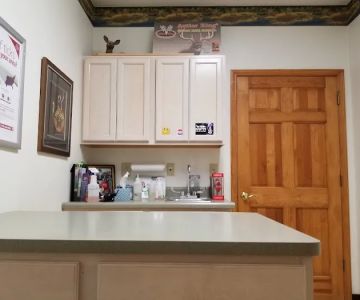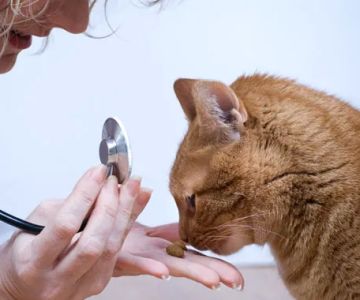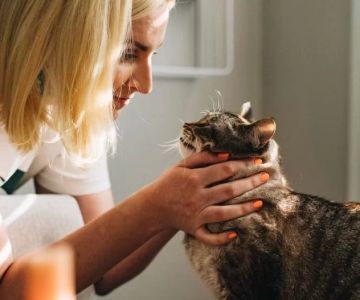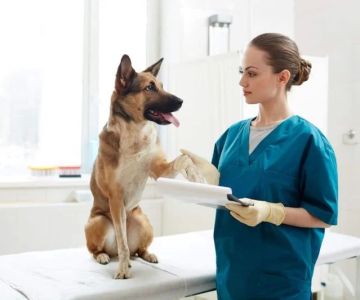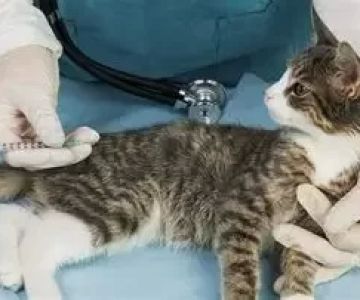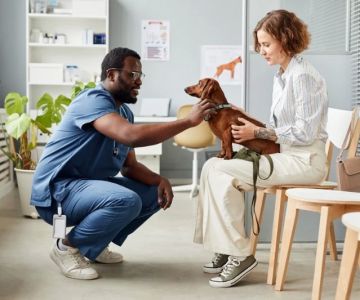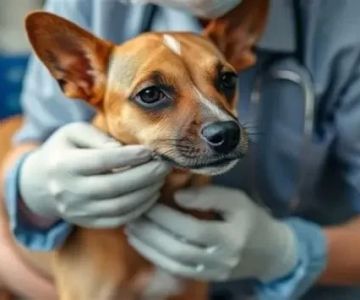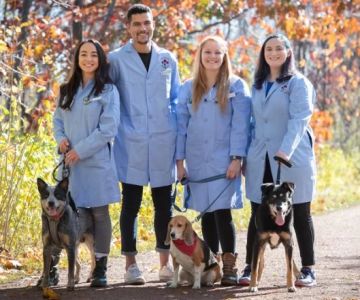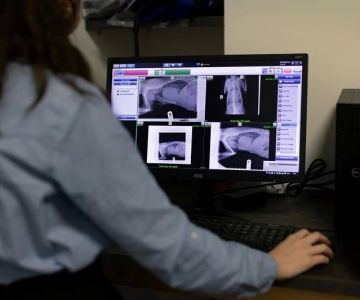What Veterinarians Do: A Comprehensive Guide to Their Roles and Responsibilities
- 1. Understanding the Role of Veterinarians
- 2. Common Tasks Veterinarians Perform
- 3. Specializations Within Veterinary Practice
- 4. How Veterinarians Keep Pets Healthy
- 5. How to Find the Right Veterinarian for Your Pet
- 6. Why You Should Choose a Professional Veterinarian
1. Understanding the Role of Veterinarians
Veterinarians are essential professionals in animal healthcare, providing a wide range of medical services to animals, both domestic and wild. But what exactly do veterinarians do? Their role extends far beyond just checking your pet's health at annual visits. A veterinarian’s expertise spans across diagnosing diseases, performing surgeries, and offering preventive care that ensures animals lead happy and healthy lives.
Veterinarians often work in various environments, including private clinics, hospitals, research laboratories, and even zoos or farms. Their primary focus is to ensure the well-being of animals by diagnosing conditions, prescribing medications, and providing surgeries when necessary. Many veterinarians also have the ability to treat farm animals, exotic pets, and wildlife, expanding their reach in the field of animal healthcare.
2. Common Tasks Veterinarians Perform
Veterinarians perform a variety of tasks that can be categorized into diagnostics, treatments, surgeries, and consultations. Here are some of the most common tasks veterinarians handle on a daily basis:
2.1 Diagnosing Animal Health Conditions
Veterinarians are highly skilled in diagnosing a wide range of health conditions in animals. Using their extensive knowledge, they conduct physical exams, take blood tests, and use imaging technologies like X-rays and ultrasounds to diagnose issues. Whether it’s an infection, injury, or chronic condition, they are trained to detect and provide the necessary treatment plans to improve the animal’s health.
2.2 Performing Surgeries
Veterinarians perform surgeries ranging from routine spaying and neutering to more complex procedures like tumor removals and fracture repairs. These surgeries require precision and expertise, and they must be carried out in sterile environments to minimize risks. Post-surgery care is also crucial for recovery, and veterinarians provide detailed instructions to ensure a full recovery for the animal.
2.3 Providing Preventive Care
Preventive care is one of the most important aspects of veterinary work. Veterinarians provide vaccinations, administer flea and tick prevention, and offer advice on maintaining a healthy lifestyle for pets. Preventive measures help reduce the risk of diseases and contribute to longer, healthier lives for animals.
3. Specializations Within Veterinary Practice
While all veterinarians are trained to provide general care, some choose to specialize in specific areas of veterinary medicine. These specialties allow them to provide expert care in particular fields:
3.1 Small Animal Veterinarians
Small animal veterinarians focus on treating common pets such as cats, dogs, birds, and small mammals. They typically handle routine check-ups, vaccinations, diagnostics, and surgeries for these animals.
3.2 Large Animal Veterinarians
Large animal veterinarians focus on treating farm animals, such as cows, horses, sheep, and pigs. They often work in rural areas, providing care to livestock and ensuring that animals used in agriculture are healthy and disease-free.
3.3 Exotic Animal Veterinarians
Exotic animal veterinarians specialize in treating non-traditional pets such as reptiles, birds of prey, and small exotic mammals like ferrets and guinea pigs. Their expertise in these animals’ specific needs is crucial for ensuring their health and well-being.
4. How Veterinarians Keep Pets Healthy
Veterinarians play a pivotal role in maintaining the health and happiness of pets. They are not just medical professionals, but also caregivers, counselors, and advisors for pet owners. Here’s how they ensure your pets remain in top condition:
4.1 Regular Check-ups
Regular veterinary check-ups are key to monitoring your pet’s health and catching potential issues early. During check-ups, veterinarians will assess the animal’s weight, behavior, skin condition, and overall health to detect any signs of illness or distress.
4.2 Personalized Health Plans
Every pet has unique needs, and a veterinarian will work with pet owners to create a tailored health plan. Whether it’s adjusting their diet, recommending supplements, or suggesting physical exercises, veterinarians ensure pets receive the right care for their specific requirements.
5. How to Find the Right Veterinarian for Your Pet
Choosing the right veterinarian for your pet is essential to ensuring that they receive the best care possible. Here are some tips for finding the right veterinary professional:
5.1 Research and Recommendations
Start by asking friends, family, or fellow pet owners for recommendations. Research online reviews and look for veterinarians who have received positive feedback for their expertise and approach to animal care.
5.2 Visit the Clinic
Before making a decision, visit the clinic to observe the environment. Check for cleanliness, friendly staff, and a welcoming atmosphere. You want to ensure that your pet will be comfortable during visits.
5.3 Specializations
If your pet requires specialized care (e.g., for exotic animals or a specific condition), ensure the veterinarian has the necessary experience and certifications to provide this care.
6. Why You Should Choose a Professional Veterinarian
Choosing a professional and experienced veterinarian is crucial for your pet’s health. Not only do they have the technical knowledge to diagnose and treat a wide range of conditions, but they also provide valuable advice on pet care and prevention. With their expertise, you can be confident that your pet is in good hands.
If you're looking for an expert veterinarian for your beloved pet, consider visiting Fred Miller Lawyer for recommendations on trusted professionals and resources. Your pet deserves the best care possible, and a skilled veterinarian is the key to ensuring their long-term health and happiness.

